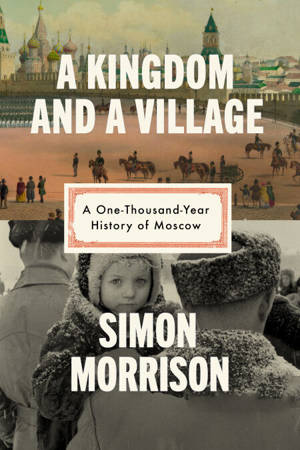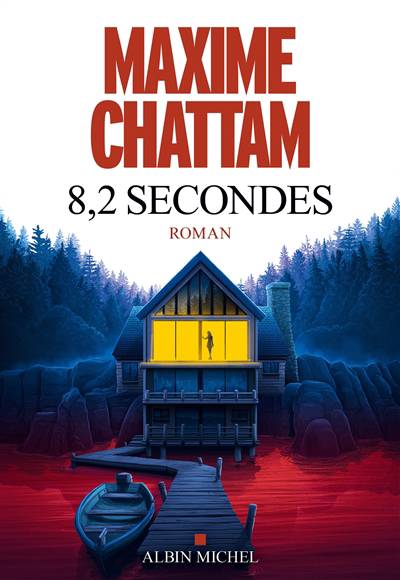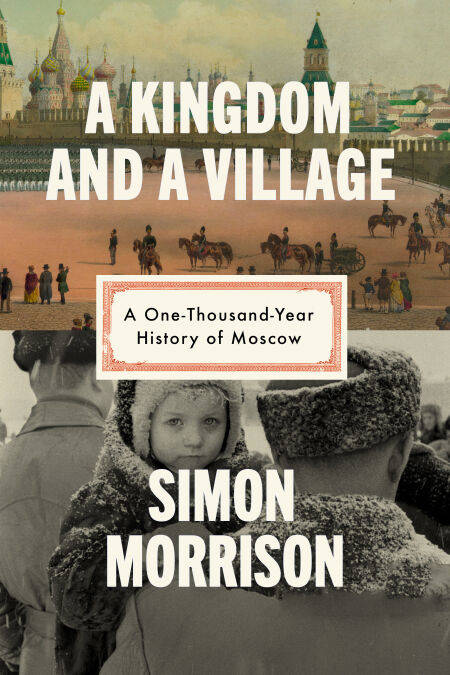
- Retrait en 2 heures
- Assortiment impressionnant
- Paiement sécurisé
- Toujours un magasin près de chez vous
- Retrait gratuit dans votre magasin Club
- 7.000.0000 titres dans notre catalogue
- Payer en toute sécurité
- Toujours un magasin près de chez vous
17,27 €
+ 17 points
Format
Description
An erudite and entertaining history of Moscow, a city defined by its survival and reinvention, and whose rich history offers crucial insight into contemporary global politics
The city of Moscow stands at the center of a nation comprising eleven percent of the globe’s landmass, 11 time zones, and nearly 150 million people, some 13 million of whom live in the capital. In A Kingdom and a Village, acclaimed historian Simon Morrison offers a vividly rendered history of Russia’s heart and soul, tracing its transformation from a “big village”—the demeaning nickname the St. Peterburg nobility gave to its provincial neighbor—into a spectacular metropolis of vast geopolitical import.
That arc is the stuff of dramatic, violent, stranger-than-fiction historical narrative: the last century alone has featured invasions and costly battles, the destruction (and reconstruction) of sacred cultural and religious landmarks, and the collapse of the Soviet republic—not to mention the rise of an authoritarian leader who is a keen student of Russian history. Morrison reaches back further still, to the founding of the place we now know as Moscow as a fortress on a river nearly a millennium ago. In the centuries that followed, any number of external forces—from Tatar Mongols and Swedes to Napoleon and Hitler—set their sights on Moscow, reinforcing its self-conception as both a glittering prize and a site of perpetual defense and resurrection.
Drawing on a rich array of archival materials, from the birchbark scrawls that record the oldest layer of Russian civilization to the articles in European newspapers heralding the opening of the magnificent Bolshoi Theater, Morrison brings to life the bloody power struggles; cultural marvels; excruciating famines, droughts, storms, and fires that have shaped and reshaped the city and reinforced its essential character.
With A Kingdom and a Village, Morrison makes a persuasive, even impassioned case that to understand Moscow is not only to unlock the spellbinding mysteries of Russia’s past but also, critically, to grasp the grim logic of its present. It is a magisterial biography of a place—and an essential guide to a people and a nation.
The city of Moscow stands at the center of a nation comprising eleven percent of the globe’s landmass, 11 time zones, and nearly 150 million people, some 13 million of whom live in the capital. In A Kingdom and a Village, acclaimed historian Simon Morrison offers a vividly rendered history of Russia’s heart and soul, tracing its transformation from a “big village”—the demeaning nickname the St. Peterburg nobility gave to its provincial neighbor—into a spectacular metropolis of vast geopolitical import.
That arc is the stuff of dramatic, violent, stranger-than-fiction historical narrative: the last century alone has featured invasions and costly battles, the destruction (and reconstruction) of sacred cultural and religious landmarks, and the collapse of the Soviet republic—not to mention the rise of an authoritarian leader who is a keen student of Russian history. Morrison reaches back further still, to the founding of the place we now know as Moscow as a fortress on a river nearly a millennium ago. In the centuries that followed, any number of external forces—from Tatar Mongols and Swedes to Napoleon and Hitler—set their sights on Moscow, reinforcing its self-conception as both a glittering prize and a site of perpetual defense and resurrection.
Drawing on a rich array of archival materials, from the birchbark scrawls that record the oldest layer of Russian civilization to the articles in European newspapers heralding the opening of the magnificent Bolshoi Theater, Morrison brings to life the bloody power struggles; cultural marvels; excruciating famines, droughts, storms, and fires that have shaped and reshaped the city and reinforced its essential character.
With A Kingdom and a Village, Morrison makes a persuasive, even impassioned case that to understand Moscow is not only to unlock the spellbinding mysteries of Russia’s past but also, critically, to grasp the grim logic of its present. It is a magisterial biography of a place—and an essential guide to a people and a nation.
Spécifications
Parties prenantes
- Auteur(s) :
- Editeur:
Contenu
- Nombre de pages :
- 528
- Langue:
- Anglais
Caractéristiques
- EAN:
- 9780593318461
- Date de parution :
- 30-03-26
- Format:
- Ebook
- Protection digitale:
- Adobe DRM
- Format numérique:
- ePub

Seulement chez Librairie Club
+ 17 points sur votre carte client de Librairie Club
Les avis
Nous publions uniquement les avis qui respectent les conditions requises. Consultez nos conditions pour les avis.






